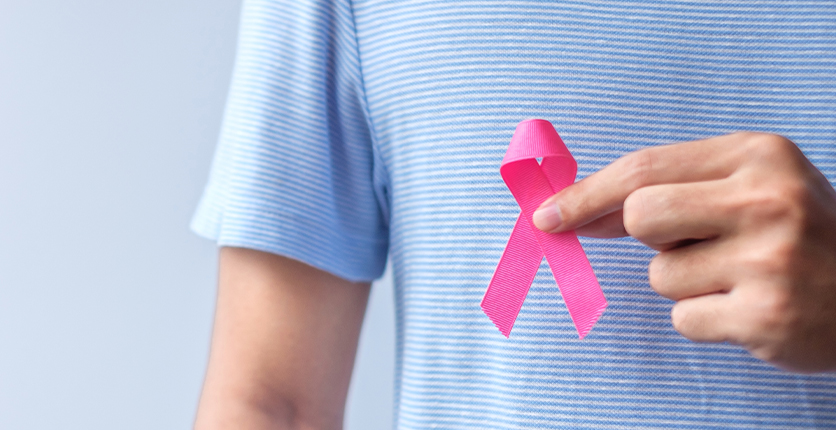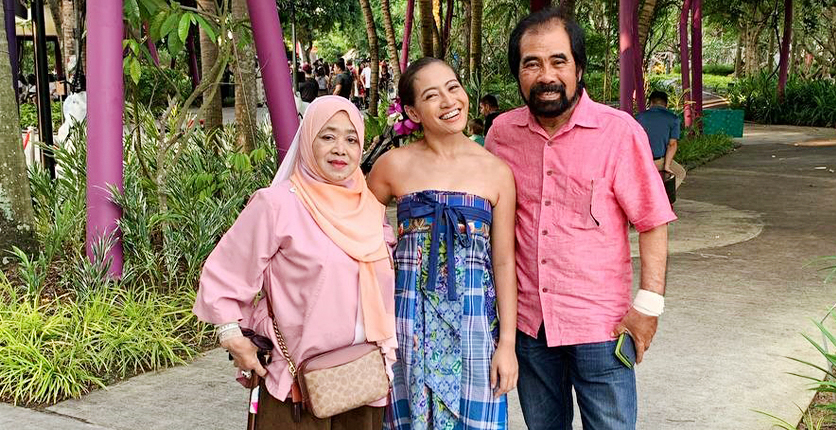Every year, October is dedicated to Breast Cancer Awareness, but most of us are so used to breast cancer being labelled a “woman’s disease” that we hardly consider that men may be diagnosed with it, too.
However, it is precisely because male breast cancer (MBC) is rare that most men do not give it a second thought and may even ignore certain risk factors and symptoms.
“Rare” doesn’t mean it still can’t happen to you, which is why it’s good to inform yourself about the disease, including how to look after yourself after you’ve been diagnosed.
1. Male breast cancer is rare, but that’s no reason to ignore it

“MBC is rare, making up less than one per cent of all breast cancers, but it’s crucial for men to be aware of it,” says Dr Melvyn Wong, Family Physician and Consultant, Raffles Medical.
“A study called The Male Breast Cancer: A Singapore Perspective 2022 revealed that most men (with breast cancer) present with advanced-stage disease, often due to a lack of awareness (of MBC) and the absence of regular screening programmes.
“Delayed diagnosis leads to worse outcomes, which is why early detection is key. If men are more aware of the possibility (of MBC), they are more likely to recognise the symptoms early, leading to a better prognosis. In Singapore, most men are diagnosed at around 63 years old, a later age compared to women.”
2. Male and female breast cancers share some risk factors
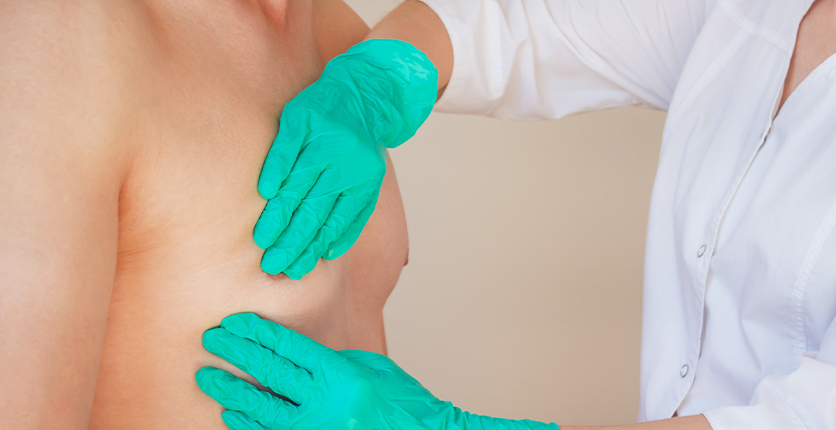
Genetic factors, particularly BRCA1 and BRCA2 mutations are significant contributors, says Dr Wong. Other risk factors include advancing age, family history, high oestrogen levels (due to conditions like liver disease), and certain lifestyle factors such as obesity and alcohol consumption.
“The incidence of male breast cancer has risen in Singapore, possibly due to increased health awareness and rising lifestyle-related risks, such as obesity,” Dr Wong adds.
Look out for these other health issues that concern men of various ages, from your 20s to your 60s.
3. Don’t ignore or dismiss these breast cancer symptoms
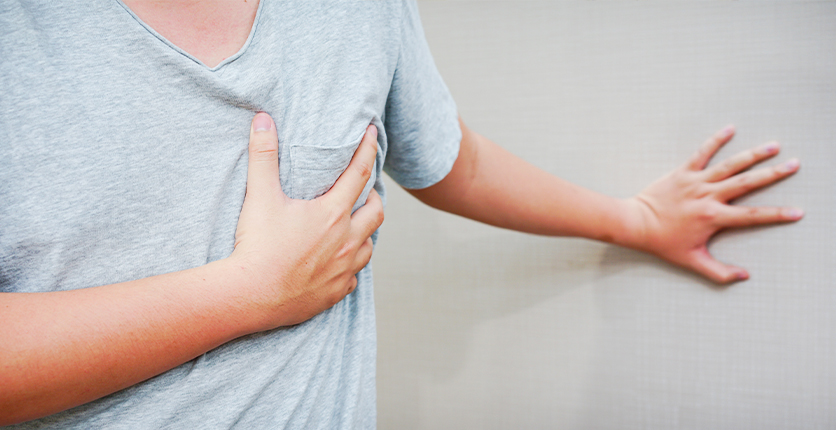
Dr Wong says that men should watch out for symptoms, such as lumps in their breasts, which are most often painless, and nipple retraction, discharge or swelling. Other common symptoms include nipple involvement and axillary lymph node swelling.
Dr Wong says that although there are no routine breast cancer screenings for men like for women, men with a family history of, or a genetic predisposition to, the disease should be vigilant and seek medical attention when they notice symptoms.
4. Breast cancer treatments for men are similar to those for women

“Treatment protocols for men (with breast cancer) largely follow those used for women (with the disease),” says Dr Wong.
“The majority of male breast cancer patients in Singapore will undergo a mastectomy, with fewer undergoing breast-conserving surgery. Similarly to treatments for women, hormonal therapy (such as tamoxifen), chemotherapy, and radiation therapy are commonly used.”
5. After a diagnosis, it’s important to take extra care of yourself
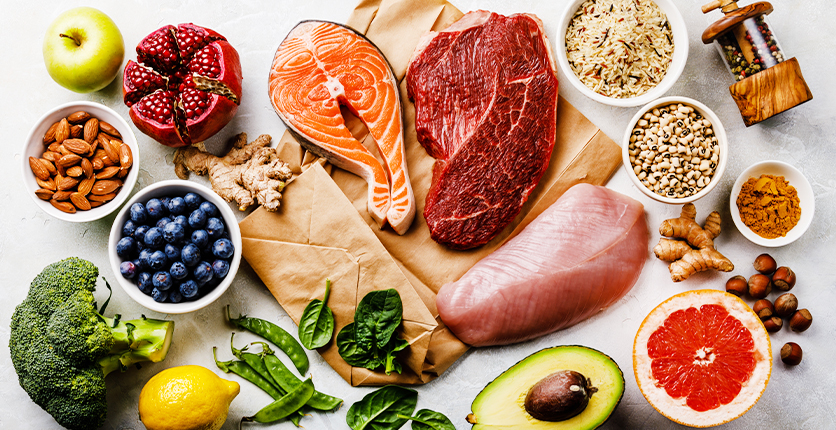
Men diagnosed with breast cancer should adopt holistic lifestyle changes to support their recovery and overall health, Dr Wong states. This includes following a balanced diet, exercising regularly, managing stress, and avoiding alcohol and smoking.
According to the Singapore Cancer Society, good nutrition during cancer treatment can help you feel better and build your strength, maintain a healthy weight, improve your tolerance of treatment-related side effects, lower your risk of infection, and heal and recover faster.
As a guide to what to eat, the Health Promotion Board recommends My Healthy Plate, which promotes the consumption of more vegetables, fruits, and wholegrain foods like brown rice and wholemeal bread, and some fish, lean meat, bean products like tofu, and dairy products. It also encourages the use of healthier oils like canola, soy, sunflower and peanut, and water for hydration.
When it comes to exercise, The Singapore Physical Activity Guidelines recommends that a healthy adult engage in at least 150 to 300 minutes of moderate-intensity aerobic activity a week.
6. Be aware of the mental health effects and stigmas surrounding male breast cancer

As breast cancer is mostly seen as a “woman’s disease”, there tends to be some stigma attached to a man having it. This can impact his physical and mental wellbeing, says Dr Wong.
“The stigma associated with MBC can lead to emotional distress, feelings of isolation, and a reluctance to seek help.
“The Male Breast Cancer: A Singapore Perspective study noted that men may delay seeking treatment due to embarrassment. This delay can exacerbate the disease and its psychological effects. It is important for men to have access to counselling and support groups, as mental health care is a crucial part of the recovery process.
“The stigma surrounding breast cancer as a ‘woman’s disease’ can be particularly damaging, and overcoming this social barrier is key to better outcomes.”
Find out more about other common men’s health issues you should look out for.
Note: Please consult your healthcare professional if you have concerns about breast cancer.
SAFRA members enjoy member rates on health screenings at Raffles Medical clinics. For more details, click here.
Want more articles like this, and other lifestyle content right in your inbox? Download the new SAFRA mobile app and opt in for the eNSman Newsletter – you don’t need to be a SAFRA member to subscribe – and never miss another story!
